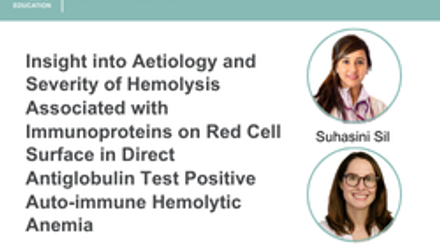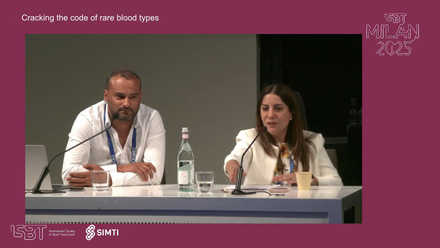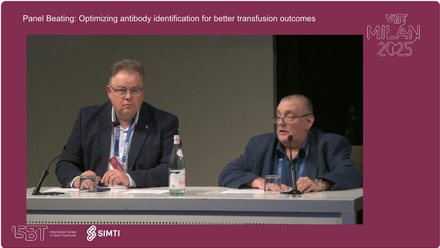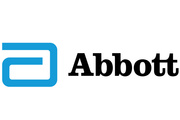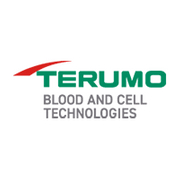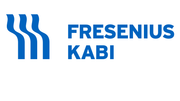The Recent technological advances in Immunohematology session included the following presentations:
1. Tim Steiert: Blood group haplotypes and third generation sequencing
2. Mercy Rophina: Characterization of the genomic landscape of blood group antigens and alleles in the Indian population utilizing whole genome sequencing data
3. Sonja Sigurdardottir: Molecular RHD donor screening in Switzerland: discovery of novel alleles by nanopore-sequencing
4. Masja De Haas: Implementation of a ddPCR method for non-invasive fetal blood group typing for alloimmunised pregnant women
5. Sylvia Mink: Automated data analysis framework for next generation sequencing blood group testing
MODERATORS: Christoph Gassner and Asa Hellberg
After the presentation, there was a questions and answers session of about 5 minutes, which is also included in the recording.
Abstract
Molecular RHD donor screening in Switzerland: Discovery of novel alleles by Nanopore-sequencing
S Sigurdardottir1, G Thun2, M Gueuning2, K Neuenschwander1, C Engström3, T Weingand4, B Frey1,2,3, M Mattle-Greminger2, S Meyer1
1Molecular Diagnostics and Cytometry, 2Research and Development, 3Immunohematology, Blood Transfusion Service Zurich (SRC), Schlieren, 4Blood Transfusion Service Central Switzerland (SRC), Lucerne, Switzerland
Background: Multiple RHD variants can substantially reduce RH1 expression on red blood cells and may be missed even by phenotyping methods including indirect antiglobulin test. To prevent alloimmunization due to such variants, molecular screening for the presence of RHD was implemented in Switzerland in 2012 for all serologically RH1 negative first-time donors, according to the guidelines of the Swiss Red Cross. This screening strategy revealed previously unknown RHD alleles, which we resolved by Sanger as well as third-generation Oxford Nanopore sequencing for performance comparison.
Aims: Herein we report on the complete data collection of the mandatory molecular RHD screening at Blood Transfusion Service Zurich over the last 6 years.
Methods: All RH1-negative donors were screened using the RBC-FluoGene D-Screen kit including primers for RHD exons 3, 5, and 10 (inno-train GmbH, Germany). When positive, genotypes and phenotypes were individually reassessed using commercial PCR-SSP (sequence-specific priming) kits as well as standard and extended serological methods, including adsorption-elution technique. Sanger-sequencing and newest long-read sequencing technology of Oxford Nanopore Technologies (ONT) were applied to resolve unknown RHD alleles. For ONT sequencing, the entire coding region of RHD (~57 kb, exon 1 to 10) was amplified in six overlapping long-range PCRs using previously published RHD-specific primers. The PCR-products (~10 kb) were sequenced on MinION flow cells.
Results: Since 2017, more than 12,000 serologically RH1-negative donor samples have been screened at the Blood Transfusion Service Zurich. Overall, 0.69% (n = 85) were genetically positive for at least one of the three typed RHD exons. The majority of these donors carried known RHD null or weak alleles (n = 82). Remarkably, in three samples our combined sequencing strategy uncovered novel RHD alleles. All were caused by frameshift mutations and serologically defined as null-alleles, also by adsorption/elution techniques, when applicable. One sample had a small duplication in exon 3 (c.395_396dup, p.K133Gfs10), one sample had a single basepair deletion in exon 2 (c.245delT, p.F82Sfs17), and the third donor carried an allele with a 4-bp deletion (c.1199_1202del, p.K400Ifs*48) in exon 9 in addition to the DAU-specific SNV 1136C>T.
Summary/Conclusions: Molecular RHD screening of serologically RH1-negative first-time donors demonstrated efficacy to detect RH1 variants of very low expression. This cross-validation serves as an advantageous strategy for mitigating the potential hazard of alloimmunization in patients. Here we describe three novel RHD variants all defined as null alleles based on genetic and phenotypic data. Successful confirmation of all novel alleles by our RHD long-read sequencing strategy provides evidence that ONT is a reliable and emerging tool for routine diagnostics.




